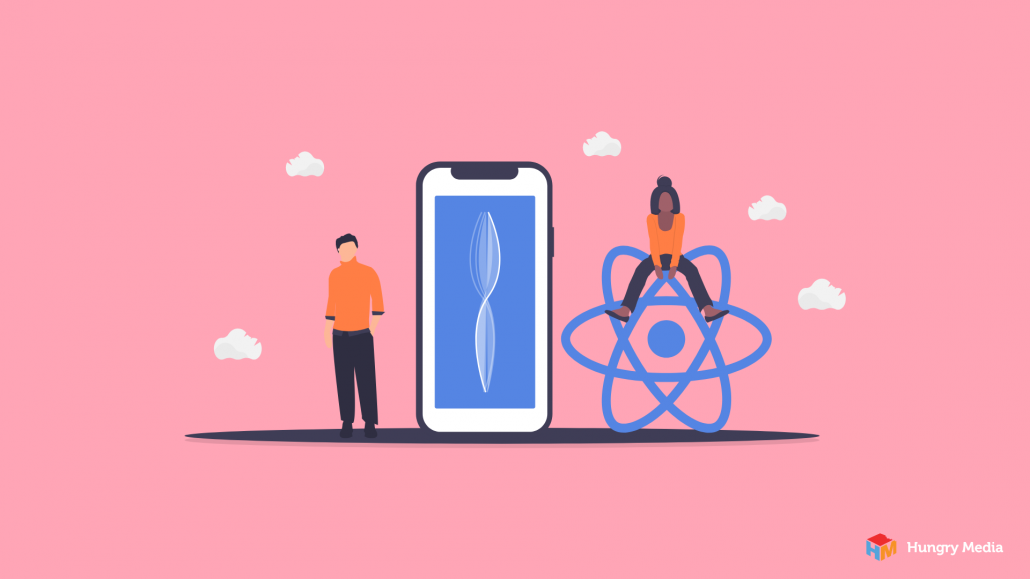
“There’s an app for that!”
It’s a phrase we’ve heard time and time again. And it’s true! In today’s world, there is very little that can’t be achieved with a mobile app. Whether you’ve decided to build an app so it’s easier for users to interact with your business, or the app is your business, you’ll have some serious decisions to make when it comes time to develop.
Native vs. Hybrid App: What’s the Difference?
Once your idea has been solidified, it’s time to decide which type of app best meets your needs. To make this decision you’ll want a basic understanding of your options, which are: native, hybrid and web apps. While there is definitely plenty to discuss surrounding the web vs. hybrid vs. native debate, web apps function similarly to mobile first or responsive websites. For that reason, we are going to focus on the native vs. hybrid app decision, here. (Don’t worry! We will discuss mobile web app development and responsive vs. mobile apps another time.)
Let’s start by saying it’s important not to choose an approach based on technology or trends, but rather on what you want your app to do. Native and hybrid apps offer entirely different experiences, both on the development end and in terms of user experience.
Native Mobile Design
Native apps are the most common type of app. They are built for mobile operating systems the coding language used is dependent upon which the platform accepts. For example, native iOS apps are developed with Swift or Objective-C. Native Android apps are written in Java or Kotlin.
Both Apple and Google provide app developers with development tools and interface elements specific to their platform.
Advantages of Native Mobile Design
- Native apps provide easy access to all functionality of the device and operating system.
- If developed properly, native apps run with fewer errors.
- Native apps receive complete support from app stores and the overall app marketplace.
- The user experience of native apps tends to be superior to hybrid apps.
- A native app must be approved by its respective operating system, which assures quality, security, and device compatibility.
Disadvantages of Native Mobile Design
- Native apps use difficult programming languages which require experienced developers.
- Expenses are more costly upfront for native apps, compared to web or hybrid apps.
- Several versions of the same app must be developed in order to run on all available mobile devices and operating systems.
Hybrid Mobile Design
Hybrid apps work across multiple platforms but generally behave similarly to a native user interface. A hybrid app is essentially a combination of a native app and a web app. Although this type of app can be installed on a device like a native app, it technically runs in a browser.
A hybrid app consists of two parts:
- The backend code – hybrid code is written in languages like HTML, CSS, or JavaScript.
- A native shell – this shell is downloadable and loads the code using a webview.
Advantages of Hybrid Mobile Design
- Hybrid apps have access to a device’s internal APIs and device hardware.
- Only one codebase is needed for hybrid apps.
- Hybrid apps can be run on multiple operating systems, which reduces the cost compared to native apps.
- Assuming great development, users won’t be able to distinguish whether an app is native or hybrid.
Disadvantages of Hybrid Mobile Design
- Hybrid apps can be much slower than native or web apps.
- These apps are dependent on a third-party platform to deploy the app’s wrapper.
- Challenges can arise if the app requires complex interaction from the user’s device.
- Bug fixes are more difficult.
- Hybrid apps are not easily customized.
Native vs. Hybrid App: Which Should You Choose?
Most companies will invest in native mobile design because of its many benefits. To minimize cost up front, it is common to develop for a single operating system at first. Once the kinks are worked out and the app proves successful, you can go back and recreate it for other operating systems. Currently, iOS apps tend to be more profitable than apps released for other platforms. If you have to choose only one, iOS is the place to start.
While the initial cost is higher for native vs. hybrid mobile development, this approach can save money over time. When working with the latest features released for a particular operating system, bugs become a huge concern for hybrid apps and hybrid websites. This carries cost implications and can even extend the timeline for design and development.
By offering a great user experience, better performance, and increased accessibility, native apps generally produce a more personalized, reliable product. This has the potential to result in higher conversion rates and long-term customer loyalty.
Of course, there are several factors to consider before simply making the call to go native. Before jumping into development, consider the following factors:
- How fast the app needs to run – if speed isn’t a huge concern, a hybrid app could work.
- What you want the user experience to look like – a simple interface will work well with a hybrid app.
- The complexity of features you need for your app to work – again, simplicity is key when going hybrid.
Regardless of which type of app you choose or which developer you go with, you want to make sure your app is quick, responsive, and reliable. Users expect more and more from mobile experiences, and your app is an extension of your brand. Mobile experience can make or break your reputation.
Native vs. Hybrid App? Let Hungry Media Help!
Our approach allows us to develop the app of your dreams. Doesn’t matter where you are in the hybrid vs. mobile web vs. native app debate. We’ll take the time to discuss your concept, must-haves, and pipe dreams before we design and develop an app that meets your needs. During the deployment phase we’ll provide rigorous testing and detailed Q&A to get your app launched. We also stay on through your launch to support your vision and our work.
If you’ve got an idea and are ready to get started, we are, too! Contact us today. We can’t wait to meet you!
contributed by Melissa Lucas, senior staff writer





